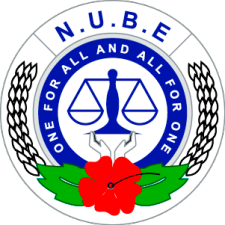PETALING JAYA: The National Union of Bank Employees (NUBE) has lodged serious allegations against Industrial Court Chairman Andersen Ong Wai Leong, claiming he flouted established legal procedures when dealing with a recent trade dispute case.
According to NUBE secretary-general J. Solomon, the chairman committed a fundamental procedural blunder by personally signing off on a 68-page award without getting input from the required panel members, as stipulated under Malaysian law.
“Legal provisions require that trade disputes must be heard by the Industrial Court Chairman together with two panel representatives – one from the workers’ side and another representing the employers.
“Both panel members must give their views before any final decision is made.
“The Chairman made a serious mistake by treating this trade dispute as though it were a dismissal case, which he could decide on his own. This was not a dismissal matter, and the law clearly states that panel member consultation is compulsory for trade disputes,“ Solomon said.
The union leader stressed that this was a grave breach of legal procedure, yet lawyers representing a prominent local bank involved in the dispute reportedly called the error merely “cosmetic” and asked the Chairman to simply rectify the mistake.
NUBE’s legal representatives strongly objected to this approach, arguing that the court had already completed its function and had no power to change its finalised ruling – a legal principle called “functus officio.”
The union argued that any such amendment would amount to an improper injunction, going beyond the Industrial Court’s jurisdiction and potentially stifling lawful union activities.
However, Chairman Ong disagreed with the union’s position and accepted the bank’s argument, issuing what NUBE described as a “gag order” against the union.
Solomon voiced serious concerns about the chairman’s handling of the matter, saying such actions not only damage the integrity of the decision-making process but also set a worrying precedent that Industrial Court chairmen can change their awards as they please.
“This conduct goes against all principles of justice and does not bode well for a body established to resolve disputes between employers and workers,“ Solomon added.
The controversy underscores ongoing issues in Malaysia’s industrial relations system and raises questions about adherence to proper procedures within the country’s labour dispute resolution mechanism.
